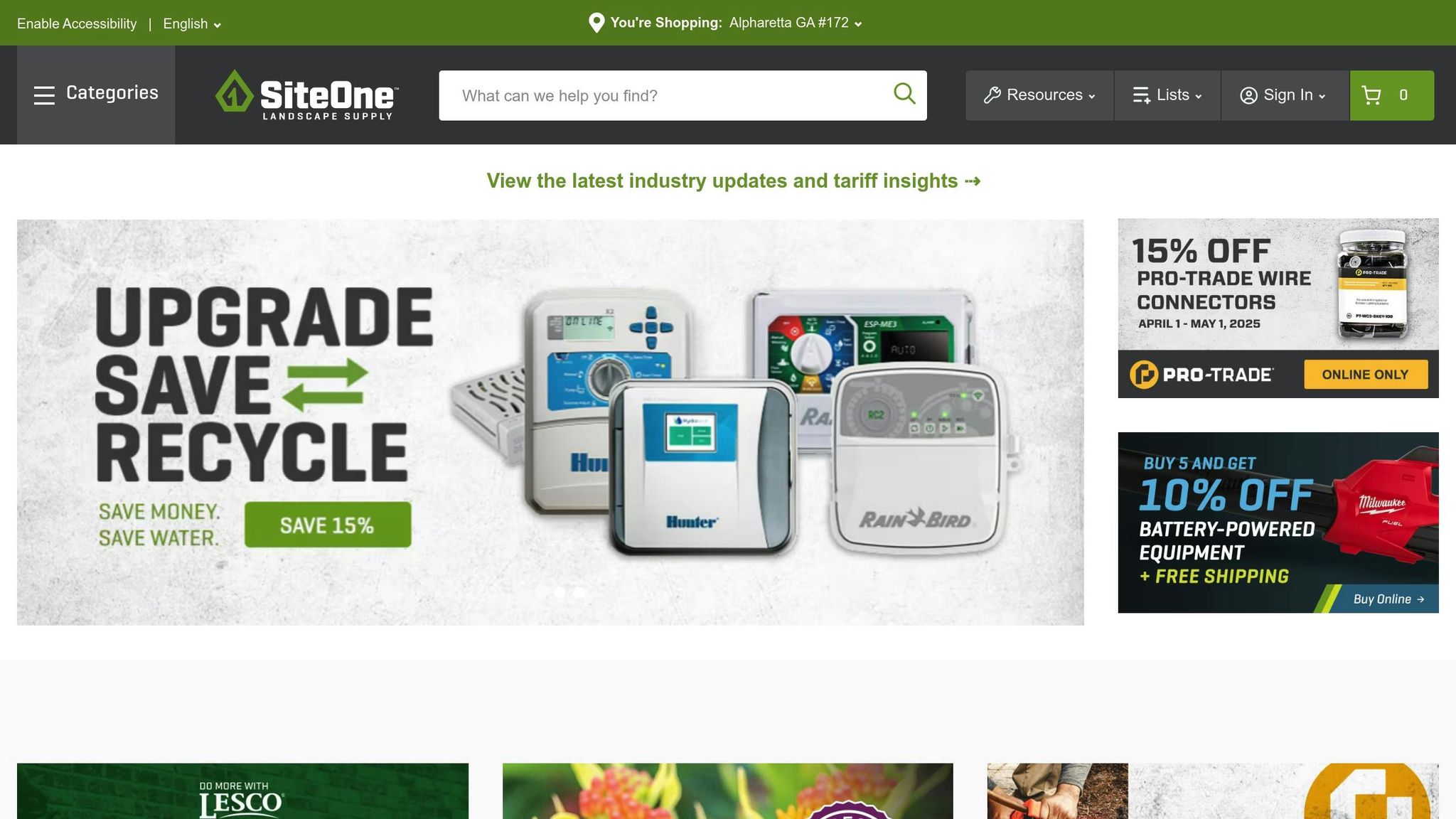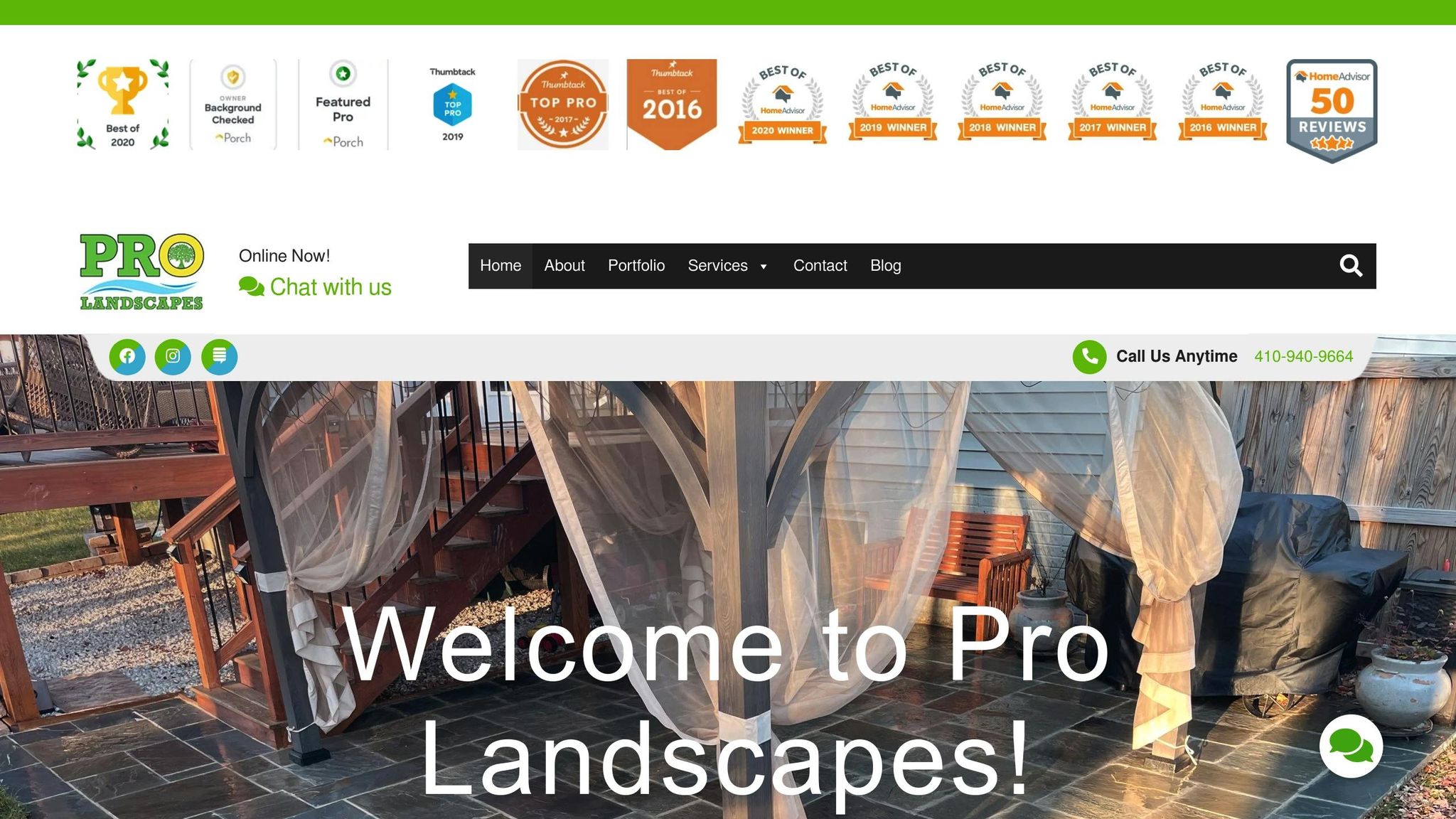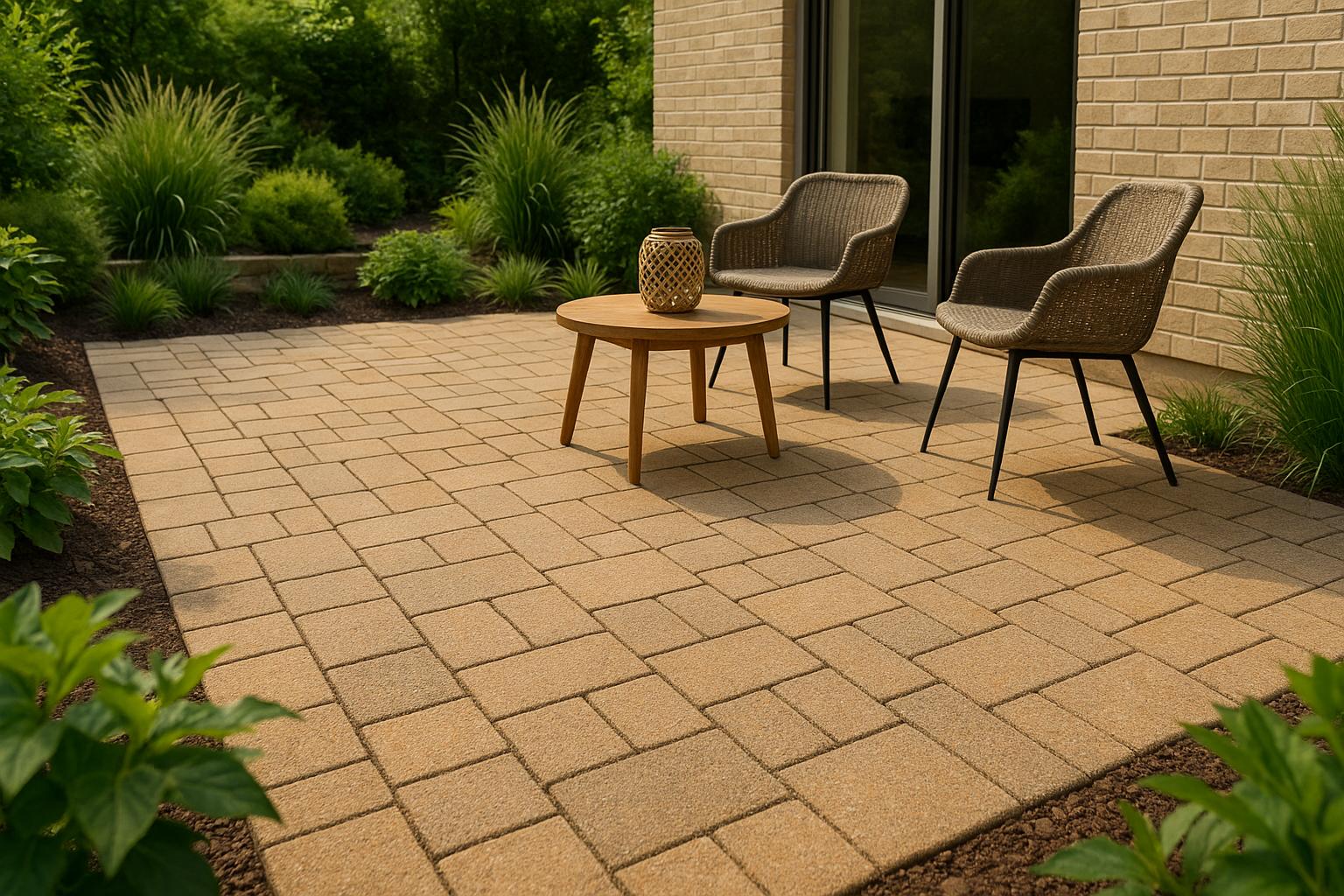- bhavya gada
- No Comments
Permeable pavers help manage water runoff while enhancing outdoor spaces. They allow rainwater to pass through, reducing flooding, icy patches, and supporting groundwater replenishment. Here’s a quick overview of the main materials and their uses:
- Interlocking Concrete Pavers: Durable and stylish. Ideal for driveways and parking lots.
- Porous Concrete/Asphalt: Smooth surfaces perfect for large areas and heavy rainfall zones.
- Gravel and Stone: Affordable with a natural look, great for residential spaces.
- Grass Grid Systems: Combine greenery with structural support for overflow parking or emergency access.
Quick Comparison
| Material Type | Key Benefits | Best Use Cases |
|---|---|---|
| Interlocking Concrete | Strong, durable, many styles | Driveways, parking lots, high-traffic areas |
| Porous Concrete/Asphalt | Excellent drainage, smooth surface | Large spaces, heavy rainfall areas |
| Gravel and Stone | Affordable, natural aesthetic | Residential spaces, organic landscapes |
| Grass Grid Systems | Greenery with structural stability | Overflow parking, green spaces |
For Maryland’s climate, these materials help prevent water damage, meet stormwater regulations, and enhance property value. Professional installation ensures durability and proper drainage.
SiteOne Field Guide: Permeable Pavers

Material Options
Choose permeable paver materials that fit Maryland’s climate, site needs, and design preferences.
Interlocking Concrete Systems
Interlocking concrete pavers are a reliable option for managing water and ensuring durability. These pavers are designed with gaps to allow drainage while maintaining strength. Pro Landscapes MD offers top-tier products like Techo-Bloc permeable pavers, which effectively handle water flow and withstand heavy use. With many patterns and colors available, they work well for both residential driveways and commercial parking lots.
Porous Surface Options
Porous concrete and asphalt provide excellent water absorption by allowing water to pass through the entire surface. This makes them ideal for larger areas, especially during Maryland’s heavy rainstorms. While they may cost more upfront than traditional materials, their efficiency in handling stormwater and their durability make them a smart long-term investment.
Gravel and Stone Choices
Gravel and stone systems are a budget-friendly way to achieve natural drainage and a pleasing look. Pro Landscapes MD uses high-quality materials to ensure these solutions meet functional needs while enhancing the outdoor space’s natural charm.
Grass Grid Systems
Grass grid systems offer a blend of structural support and natural greenery. These grids are designed to handle vehicle loads while allowing grass to grow through, making them ideal for overflow parking or emergency access areas. They provide a practical solution while maintaining a green, natural appearance.
Material Comparison Guide
Here’s a quick comparison of the main permeable paver materials:
| Material Type | Key Benefits | Best Use Cases |
|---|---|---|
| Interlocking Concrete | Strong, durable, and available in many styles | Driveways, parking lots, and high-traffic areas |
| Porous Concrete/Asphalt | Smooth surface with excellent water drainage | Large spaces and areas prone to heavy rainfall |
| Gravel and Stone | Affordable with a natural aesthetic | Residential spaces and organic-looking landscapes |
| Grass Grid Systems | Combines greenery with structural stability | Overflow parking and areas needing a green look |
Each option offers distinct advantages. Assessing the site’s needs, intended use, and local regulations will help you make the right choice. Professional installation by experts like Pro Landscapes MD ensures the system works efficiently and lasts for years.
Uses in Maryland
Project Types
Permeable paver systems are a practical choice for many Maryland properties. They work especially well in residential driveways and patios, where better drainage and improved curb appeal are priorities. For example, a March 2023 project in Baltimore featured a Techo-Bloc permeable paver driveway in a herringbone pattern. The result? A 90% reduction in runoff and a 20% increase in property value [1].
Here are some common uses:
| Project Type | Recommended Material | Key Benefits |
|---|---|---|
| Residential Driveways | Techo-Bloc or Allen Block Pavers | Better drainage and curb appeal |
| Patios | Techo-Bloc Pavers | Improved water management and property value |
These projects are especially effective in dealing with Maryland’s unpredictable weather.
Weather Impact
Maryland’s climate swings between hot, humid summers and cold, wet winters, which makes proper drainage planning essential. Permeable paver installations help control water flow, reducing risks like water damage and foundation problems.
Local experts use customized approaches to tackle these climate challenges effectively.
Pro Landscapes MD Solutions

Pro Landscapes MD takes full advantage of the benefits offered by permeable pavers. They specialize in installations across central Maryland, offering a detailed process that includes site evaluation, custom design, and the use of top-notch materials like Techo-Bloc and Allen Block [1].
Their approach includes:
- Thorough site evaluations and careful base preparation
- Strategic grading to ensure proper water flow
- Custom material selection to match project needs
- Seamless integration with existing landscape features
This method ensures both functionality and a polished, professional look.
sbb-itb-843f8be
Installation Guide
Installation Steps
Installing permeable pavers requires detailed planning and precise execution to ensure proper drainage and long-lasting durability. Below is a step-by-step breakdown of the key phases involved:
1. Site Evaluation and Planning
The process begins with a thorough site assessment. Installers measure ground slopes, identify drainage patterns, and perform soil testing. They also determine the water table level to ensure the system functions as intended.
2. Ground Preparation
Preparing the ground involves several important steps:
- Excavating to a depth of 8–12 inches for residential projects.
- Installing geotextile fabric to prevent soil from migrating into the base layers.
- Grading the surface to achieve a minimum slope of 1% for effective drainage.
3. Base Material Installation
A stable base is essential for performance. This includes:
- Adding 6-8 inches of #2 stone aggregate for the sub-base.
- Applying 2 inches of #57 stone for the setting bed.
- Compacting each layer mechanically for stability.
4. Paver Placement
Pavers are laid precisely according to the design. Edge restraints are installed, joints are filled with aggregate, and the entire system is compacted to ensure it settles correctly.
For installations in Maryland, professional expertise is especially important to meet local standards and ensure the system performs well over time.
Professional Setup
Pro Landscapes MD takes these foundational steps further by using specialized methods to enhance durability and meet Maryland’s specific climate challenges. Their advanced drainage solutions and attention to detail set them apart.
"At Pro Landscapes MD, we specialize in creating outdoor environments that blend beauty, function, and sustainability." [1]
Here’s what their professional installation process includes:
| Installation Feature | Benefit |
|---|---|
| Custom Drainage Design | Prevents water pooling and foundation issues |
| Premium Materials | Uses Techo-Bloc and Allen Block for durability |
| Advanced Techniques | Ensures long-lasting performance |
| Professional Equipment | Achieves accurate compaction levels |
Pro Landscapes MD also integrates stormwater management into their installations, addressing common issues like settling and shifting. Their expertise ensures the final result not only meets functional and aesthetic goals but also promotes effective drainage solutions.
Care and Upkeep
Regular Maintenance
Keep your drainage system working efficiently with routine inspections. After heavy rain, check the paver surface for signs of clogging or pooling water. Spotting debris buildup or minor settling early can help maintain performance and protect your landscape.
Common Issues and Fixes
Address drainage problems quickly to avoid bigger headaches. Here are some typical issues and how to handle them:
| Issue | Solution | Prevention |
|---|---|---|
| Clogging or Pooling | Install French drains or box & pipe systems | Regular inspections and debris clearing |
| Uneven Settlement or Poor Drainage | Regrade the area to improve water flow | Proper installation and regular checks |
If you’re in Maryland and dealing with drainage problems, Pro Landscapes MD suggests adding measures like French drains, box & pipe systems, or regrading to enhance your permeable paver system [1]. For unresolved issues, professional help may be necessary.
When to Call the Experts
If drainage problems persist, reach out to Pro Landscapes MD. They offer services like regrading, French drain installation, and water management solutions to keep your system in top shape [1].
Next Steps
Before installing permeable pavers, it’s essential to consider a few key factors:
As highlighted in our guide, Maryland’s weather and drainage challenges play a big role. You’ll need to evaluate your property’s drainage capabilities, traffic demands, and design preferences. This analysis helps set the stage for a successful project:
Professional installation ensures the best results. Pro Landscapes MD offers specialized solutions for Maryland properties, focusing on permeable paver systems. Their approach includes:
| Service Component | Details |
|---|---|
| Assessment | On-site evaluation and drainage planning |
| Design | Custom layouts designed for effective water management |
| Materials | High-quality permeable paver options suited to local conditions |
| Installation | Expert installation with integrated drainage systems |
| Support | Guidance on maintenance to keep the system performing well |
By following our installation and maintenance recommendations, you can ensure your project complies with local standards. Pro Landscapes MD serves central Maryland, including Howard County, Montgomery County, and Baltimore County, bringing local expertise to your project.
Request a free proposal to find the best permeable paver solution for your drainage needs, while ensuring compliance with local regulations and guidelines [1].
FAQs
What should I consider when selecting permeable paver materials for my project in Maryland?
When selecting permeable paver materials for your Maryland project, consider factors like the purpose of the space, the local climate, and the desired appearance. For example, a driveway may require more durable materials, while a patio might prioritize aesthetics.
Additionally, think about drainage needs and maintenance requirements. Permeable pavers are excellent for managing stormwater and reducing runoff, making them a practical and eco-friendly choice. Consulting with professionals who understand Maryland’s unique environment can help ensure your project is both functional and visually appealing.
What makes the installation of permeable pavers different from traditional pavers, and why should you hire a professional?
The installation of permeable pavers is distinct because it involves a specialized base designed to allow water to pass through and drain into the ground. Unlike traditional pavers, which may use a compacted base that limits water absorption, permeable systems require precise layers of gravel and aggregate to ensure proper drainage and prevent flooding.
Professional installation is highly recommended because it ensures the system is built to function efficiently and last for years. Experts have the knowledge and tools to handle the intricate base preparation, leveling, and placement required for optimal performance. Improper installation can lead to drainage issues, uneven surfaces, or premature wear, so leaving it to professionals helps protect your investment and ensures long-term success.
How do you maintain permeable paver systems to ensure they perform well in Maryland’s heavy rainfall?
To keep permeable paver systems functioning effectively in Maryland’s rainy climate, regular maintenance is key. Start by clearing debris, such as leaves, dirt, and sediment, from the surface to prevent clogging. Sweeping or using a leaf blower works well for this. Inspect the joints between pavers periodically and replenish joint material, like gravel, if needed to maintain proper drainage.
For areas prone to heavy water flow, ensure that the underlying drainage system, such as French drains or dry wells, is functioning properly. Routine checks and professional assistance can help address any issues early, preventing erosion or water pooling. With proper care, your paver system can remain durable and effective for years to come.


















Chat with Us